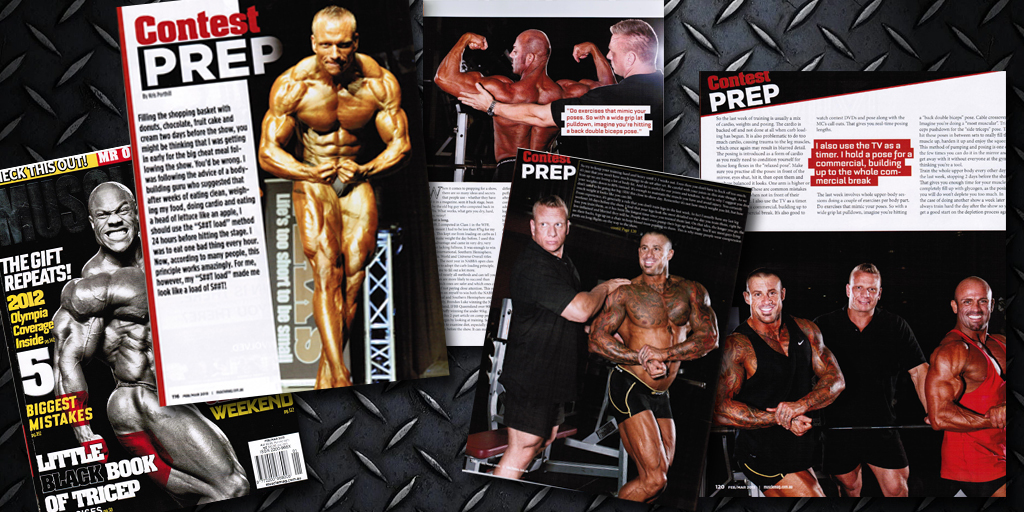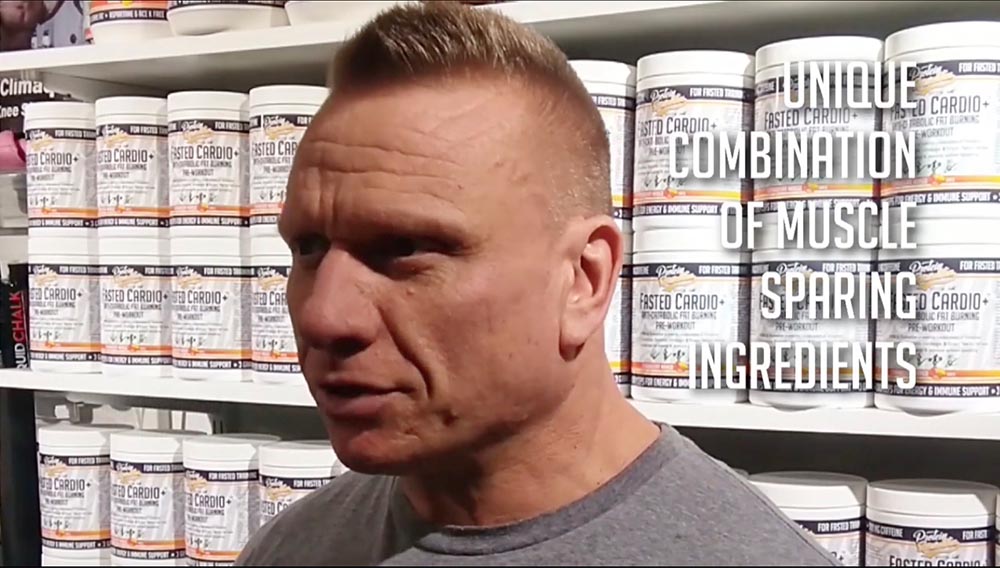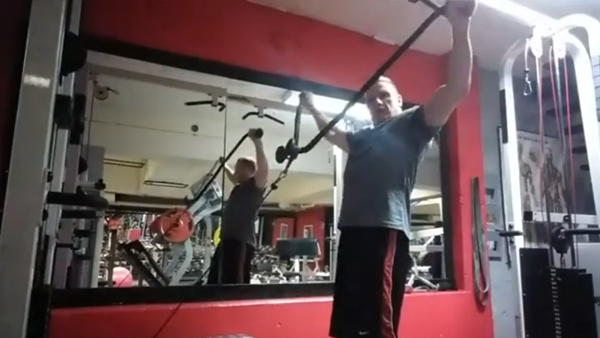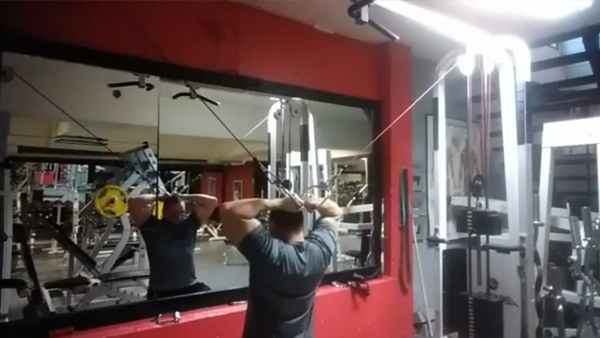Comp Prep Part 2 - Muscle Mag 2013
Last issue we talked about training leading up to a contest. Most people do ridiculous amounts of cardio in order to drop all the “bulk” they happily put on in their “off season”. Cardio was almost non-existent in that period so now everyone jumps on the treadmill and starts walking, weighing themselves, walking some more and updating their status on Facebook telling everyone how hard this is. 12 weeks, 16 weeks or 20 weeks it’s a long, long period. In 2009 I dieted from January right through November as I had 5 shows to do that year. It can be done, but it takes a lot of will power.
The first thing you need to do is understand what your caloric requirement is. If you are trying to add muscle you need to be in a surplus. If you are trying to drop fat, you need to be in a deficit. Most people eat the right foods but at the wrong time, and then too much of the right foods. This in both cases makes it the wrong food.
Before I commence to explain my knowledge of contest prep and nutrition, which is only one of many ideas on the subject, I must state that I by no means am prescribing the following diet. I am merely giving you an insight into how I structure my own diet and those of the athletes I work with. As a bodybuilding competition is largely considered a sport by many (unlike Summadayz or Stereosonic), it would be fair to say that a bodybuilder would be classed as an athlete. And as an athlete, we take on inherent risks of eating high amounts of certain foods, manipulating water and depriving ourselves of what many would call a well-rounded diet. So the following ideas are not recommended for average trainers who are not what we call “athletes”.
The formula people use for working out your Resting Metabolic Rate (RMR) is
66.5 + (13.75 x bodyweight) + (5.003 x height in cm) – (6.775 x age)
Then you multiply it by:
1.53 for sedentary
1.76 for active or moderately active
2.25 for vigorous active
From that equation we can then understand roughly how many cals we need to consume in order to grow more muscle or decrease fat. Add an additional 200-500cals per day to add a lb of muscle per week, whilst to lose 1lb of fat a week you need to eat 200-500cals less per day then your caloric requirement for your training intensity.
Then you need to get an idea on where those cals are coming from i.e. fat, carbs or protein. Most use the idea of at least 2g protein per kg bodyweight. This is then multiplied by 4 in order to see how many cals are coming from protein. Then the ISSN Sports Nutrition book “The essentials of nutrition and supplements” states a male bodybuilders carb requirement’s to be anywhere from 2.6g – 8.3g per kg bodyweight per day.
So you may be eating up to 8g of carbs per kg bodyweight. Why do we need so much carbs? Aren’t they evil? Aren’t they the only non-essential macronutrient? Paleo people would be rolling their eyes and cursing me by now. Once again this is my opinion, my experience and by no means the only correct way to do things.
Ask yourself: What is the main fuel source for weights? Fat or carbs? In an anaerobic environment where oxygen is in a deficit, glucose (carbs) is our prime fuel source. So we should have carbs in order to train hard with weights. If you remove carbs too early you will be unable to train hard, as carbs are our predominate fuel for weights. So keep your carbs up around training times, as that is when you need them i.e pre, intra and post. This will allow you to train hard enough and grow. Outside of that time you don’t really need that much.
Trimming down depends a lot on your diet, and cutting back on the calories must come gradually and allow for a consistent body fat loss. If you drop cals too fast you end up slowing your metabolism, having a negative effect.
If the calories go into a deficit state i.e 200-500 below your required amount, you will start to draw on your stored energy. This is now when you are burning fat. You can’t go zero carb as it will slow your metabolism. We can use fat for fuel outside of training times. But if you already have a lot of stored fat, then you don’t need to consume as much fat as it is already there.
I usually get strict on my diet 12 weeks out and increase the amount of vegies I eat and salads for dinner. The closer I get to show the more I replace a chicken and vegie meal with a straight chicken and broccoli meal. And the salads start to become more often, going from the last meal of the day to the last 2 or 3 meals of the day. By making these slight changes you can adjust every meal according to the rate at which you are leaning up.
So to give you an over view day of one week may look like this:
Meal 1 – oats, egg whites and protein powder
Pretrain – protein, BCAA and vitargo or dextrose
Intra – BCAA and vitargo or dextrose
Post workout – BCAA, protein and vitargo or dextrose
Meal 2 – chicken/kangaroo and veggies
Meal 3 – same as 3
Meal 4 – Chicken/kangaroo and rice or sweet potato
Pretrain – protein, BCAA and vitargo or dextrose
Intra – BCAA and vitargo or dextrose
Post workout – BCAA, protein and vitargo or dextrose
Meal 6 – Chicken/fish and veggies
Meal 7 – Fish and salad
Then as I get closer I start to remove carb meals keeping carbs only around training, then only around one training session.
Eventually looking like
Meal 1 – oats, egg whites and protein powder
Pretrain – protein, BCAA and vitargo or dextrose
Intra – BCAA
Post workout – BCAA, protein and vitargo or dextrose
Meal 2 – chicken/kangaroo and brocolli
Meal 3 – same as 3
Meal 4 – same as 4
Pretrain – protein and BCAA
Intra – BCAA
Post workout – BCAA and protein
Meal 6 – Chicken/fish and salad
Meal 7 – Fish and salad
When I diet myself or work with other competitors I use my eye and assess when we replace a carb meal with a veggie meal or broccoli or salad. It’s very individual. I’m not a believer in cutting out protein shakes weeks out from a show. I only drop them when I am salt depleting as I am removing the sodium you get from the shake. People claim that whey isolate will still have lactose issues and should remove them, but I don’t believe that myself.
The last 7 days before show is when it gets a bit crazy. I am a believer in salt, water and carb manipulation. I have tried many methods including fat loading, junk loading and going right up to the show without carbs. Each of them I’ve had varied success with. However they have all had one thing in common. That was salt loading with water and then depleting. The theory of salt loading was passed on to me from my first bodybuilding mentor, Don Mahoney. He told me of the loading of sodium and extra water to increase the bodies sodium and potassium levels, once sodium is dropped for a couple days the bodies increased potassium levels compared to its low sodium levels will encourage water to be drawn into to the muscle away from the skins surface and give a tissue paper like skin appearance. It has been argued that the body will restore the balance and it is a waste of time, however I site the marked difference in physique appearance of Brendan Sacca from the NABBA Qld’s and the IFBB Qld. The only change we made was salt and water manipulation. The feedback was amazing. The loading and depleting process is quite taxing so it is hard to repeat several times as it results in a fairly significant strain on the body and uncomfortable water rebound that follows. The last week before show looks like the following;
Mon – Chicken, lettuce, salt, water and protein shakes
Tues – Chicken, lettuce, salt, water and protein shakes
Wed – Chicken, lettuce, salt, water and protein shakes
Thurs – Chicken, lettuce, water, rice and no salt
Fri – Chicken, lettuce, water, rice and no salt
Sat – Chicken, lettuce, water (half day), rice and no salt
Sun (comp day) – Chicken, rice, rice cakes, salt, sip on water, sweets i.e jelly beans
On the day of the show I have either gone with a high fat meal in the morning like steak and eggs, or a high fat and carb meal like half a cheesecake. They have both worked, but I suggest the steak and eggs is the cleaner and safer option. Fat loading on the morning of the show is very popular.
The amounts of rice eaten on the carb up days are very individual depending on the size of the physique and how much glycogen stores we need to refill. So I haven’t given amounts. If you are interested in getting a specific comp prep diet I customise it for the body type and especially for the gender. Some women are a lot more carb sensitive than men.
Hopefully this article has given you a lot of ideas to help you take your conditioning to the next level. I am very happy to work with people for shows and more information on comp prep and training is available on my website www.teamviking.com.au




